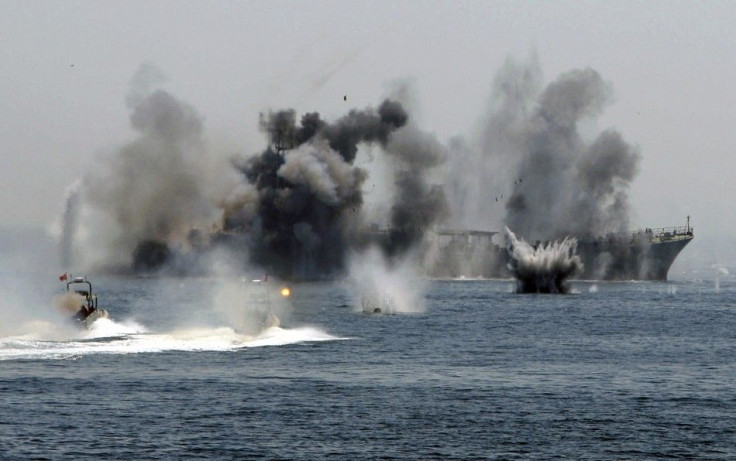War Drills Sparks Rumor Mill, Sends Crude Sky High

Tuesday proved to be a volatile day for crude.
In what was probably Iran's response to growing threats made against its sovereignty, and a possible show of strength, the Middle Eastern country announced it is planning war drills to practice closing off the Strait of Hormuz -- one of the world's main oil arteries.
The announcement, and mistaken reports incorrectly confirming the indefinite closure of the strait, shocked crude prices skyward Tuesday.
Bloomberg reported crude prices climbed as high as 3.6 percent before the Iranian Foreign Ministry announced it was not closing the oil supply bottleneck running between the country and Oman on the Musandam Peninsula.
Oil prices closed at $100.14 a barrel in New York, reported the Associated Press, after prices initially rose above $101 in response to the news. Crude in London on the Brent Crude Index rose $2 to 109.08 a barrel.
But while the military tests did not actually close off the vital supply route, Iran's posturing is a clear indication of what the country will do if threatened. What more, the country's military officials have said the same thing.
Speaking to Iranian's Mehr news agency on Tuesday, Revolutionary Guards commander general Mohammad Ali Jafari said his country was ready to close the strait if threatened.
The news agency reported the Iranian military fired surface-to-sea missiles in its war games Tuesday.
This means that should the enemy try to pose a threat against the Islamic republic from outside the Strait of Hormuz, we will have the power to retaliate in kind, Jafari told the news agency.
In a 2008 journal published by Harvard University's Belfer Center for Science of International Affairs, Iran is suspected of having military capabilities strong enough to close off the strait for at least one month using mines, surface-to-sea missiles and land-based defense installations.
The impact to oil prices would be astronomical, especially considering how crude prices doubled during the last Gulf War when oil supply in Iraq and Kuwait was temporarily disrupted.
The news of military training exercises come at a time when several European Union countries have imposed new sanctions on Iran and recalled their ambassadors after angry Iranian students stormed and trashed the British embassy in the country. It also comes after last week's capture of a U.S. military drone by the Iranian army and amid rising tensions around the country's nuclear program.
Iran's oil minister in November told Qatar-based news agency Al Jazeera that his country intends to use oil as leverage in the event of a conflict involving its nuclear program, reported Reuters. Iranian legislator Parviz Sarvari also reportedly told the Iranian Student News Agency that Iran will respond in kind to threats made against its sovereignty.
If the world wants to make the region insecure, we will make the world insecure, Sarvari said as he announced his country's war games on Monday, according to Reuters.
This will not be the first time Iran is engaging in war simulations. In April of last year, the Iranian military conducted similar exercises.
© Copyright IBTimes 2025. All rights reserved.





















